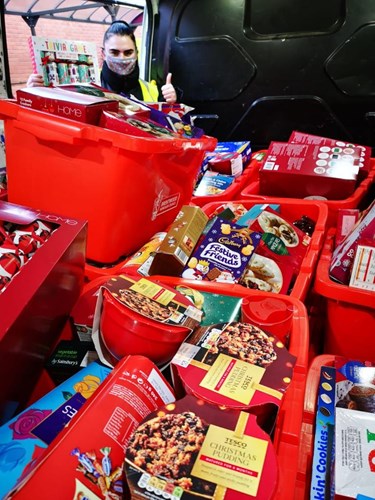Community Support Networks – working with faith organisations to support vulnerable residents during COVID-19
In March 2020, Brentwood Borough Council worked swiftly with the voluntary and faith sectors to coordinate a response to support the most vulnerable residents in the community. Within two weeks of the first lockdown, the local Community Support Network had been established, consisting mainly of volunteer and church-based organisations who were keen to offer assistance to those most in need.
It became apparent very quickly in the early weeks of the pandemic that a volunteer response was necessary to provide support to the most vulnerable members of the community. Spread across 60 square miles, the Borough of Brentwood has many rural areas with outer lying villages and an aging population. Like many people across the country, numerous residents were unable to leave their houses to collect food, prescriptions and other essentials.
An existing good working relationship with the voluntary and community sector set the Council in good stead to engage the right organisations to develop a Borough-wide network. Supported by the Council for Voluntary Services, the Council approached a number of local voluntary action groups and churches, who already begun to undertake support work in their communities, to work together to provide a consistent approach to support residents. The Community Support Network was developed with 17 support hubs in wards across the Borough, 13 of which were churches.
The three local church-based food banks in the network were supported to expand, with funding provided by the Borough Council for storage, space and other needs. In particular, Manna Meals, who were already running a community freezer scheme, provided and delivered free, ready-made nutritious meals for members of the community unable to create their own. The Daily Bread Café at St Peter’s Church in Hutton, served free hot meals (when restrictions allowed) and collated end of shelf- life produce with other donations for residents to collect. Doddinghurst Road Church continued to run the local Foodbank as well as providing other key support. All Saints Church in Doddinghurst and St Nicolas’ Church in Kelvedon Hatch, worked together as neighbouring villages to develop a wellbeing hub and engage local businesses and schools in support schemes. Regular partnership meetings enabled the organisations to access other key information, updates and training, and work together to benefit from sharing initiatives and schemes that responded directly to the needs of the community arising from the COVID-19 pandemic.
Together, the hub partners, (including Brentwood Mutual Aid, BRAG (Brentwood Residents Action Group), Lighthouse Furniture Project and parish councils as well as churches), carried out 6000 tasks within the first 3 months of the pandemic to support vulnerable residents. Overall, the partnership approach has significantly helped to reduce inequalities across the Borough and in a number of cases the early intervention of the churches and other voluntary organisations has prevented escalation to a higher level needing greater intervention.
The Community Support Network is currently looking at COVID-19 recovery and its role moving forward. In particular, it is keen to look at the various reasons why residents may need to get additional support, particularly with food banks, and deliver early intervention strategies to help people before they need to access further support services. This may be signposting to appropriate support for specific needs, running accessible drop-in sessions for job or IT skills, or a simple coffee morning that will reduce isolation and reconnect residents in their community.
Organisations such as churches, based right in the heart of the neighbourhood, know their residents and their needs best. Support for them should be flexible to allow them to meet these necessary needs as they see fit.

